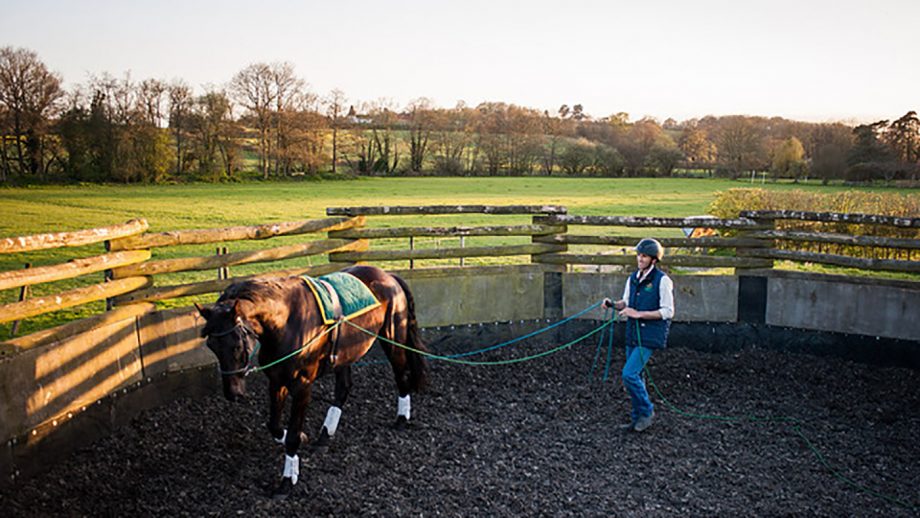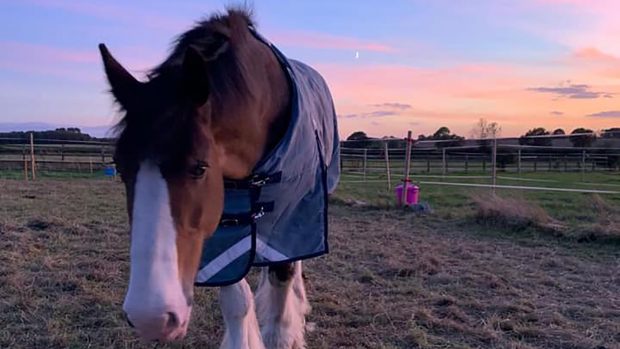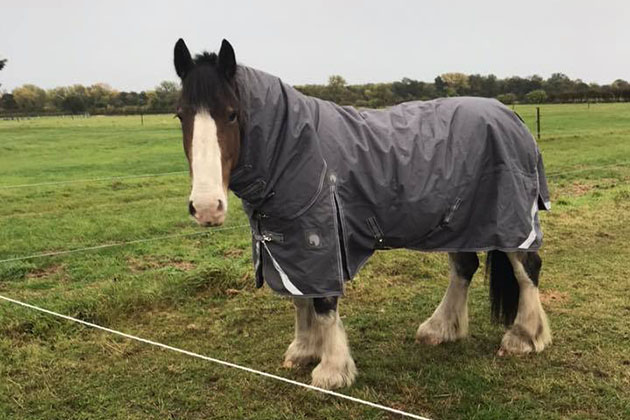A very Happy New Year to you all! I hope you all had a fun festive season, and are cracking on with 2020. A much wiser person than me said that it is much better to set specific goals rather than resolutions, so I have been busy making plans for the business and my personal development.
I am really excited that one of these is to complete the Centre 10’s Applied Psychology for Equestrian Coaches Advanced Programme, led by Charlie Unwin and Sarah Huntley. I have always been very interested in psychology, of both the equine and human variety, and this will give me an opportunity to develop my knowledge and gain a qualification in this area.
A few years ago, Charlie and I ran a few ‘Meeting of Minds’ demonstrations, focusing on the rider and horse psychology and how an understanding of both can improve our partnerships. Hopefully we’ll get the chance to revisit them at some stage.
I might need all my knowledge of sports psychology to help me in one of my other personal goals of competing JJ. He is working really well at home and getting much better off-site, but I get so fixated on correcting mistakes, I’m worried that during a dressage test, I’ll go off-track and do movements again if they’re not good enough!
On a more sombre note, the year has got off in the worst possible way for my family and many friends in Australia. I grew up on a sheep and cattle property near the Snowy Mountains in a town called Tumut, which is currently on the edge of the 600,000 hectare so called “super-fire” raging through the Victoria-NSW border. I set up a JustGiving page at the suggestion of my youngest Your Horsemanship member, Xanthe, and was blown away by the response, raising over £4,500 in a week for the Rural Fire Service of New South Wales, and the local fire stations in the South West Slopes.

Bushfires in Australia
My parents aren’t out of the woods yet, with temperatures soaring back to over 40, and strengthening winds. It really is the most horrendous situation, not aided by the fact that so much of rural Australia is also struggling with drought conditions. I have to stop myself whinging about the British mud on a daily basis; what the Aussies wouldn’t give to have rain-soaked fields right now.
At our January Coffee Morning last week, which also raised over £500 for the fund, I worked with a young horse called Cassian, owned by my apprentice groom. Georgie is a confident competition rider, but even she has little chance of staying on Cassian’s ‘spin, squeal and buck’ display! After watching a video of him, and chatting to Georgie about Cassian, we deduced that he was a high-energy horse, who wasn’t behaving out of fear, but out of a combination of a lack of respect for the rider and ‘high jinks’.
As I worked with him during the demonstration, I found him to be a little challenging in his groundwork, kicking out at me and focusing on everything but what I was asking! Once I got him working with me, I gave him a ride, and I found that he didn’t like being pushed forward, which told me he wasn’t very willing to try for his rider. This can be the start of a horse becoming backward and resentful in their ridden work. Once I got him through this, I made sure he had plenty of room to travel forwards, with no block in my reins, and after a couple of ‘discussions’, he finished the session responding to my leg and going forwards.

One of my coffee mornings in full swing
One of my main areas of interest now is the diagnosis of ‘bad’ behaviour in horses; is it physical, or is it mental? I always make sure clients have had their horses checked for pain-related issues that may cause the unwanted behaviour, and the majority of horses that I work with that have been given the all-clear go on to be successfully re-educated for the owner.
However, every now and again, I come across a horse that just doesn’t learn and it’s like ground-hog day every time I work with them! With these horses, I am convinced that there is a pain-related or phyical issue that hasn’t been detected, and with some, this has been backed up by subsequent findings of, for example, brain tumours, severe gastic ulcers and minor tendon issues. Therefore, it was very interesting to listen to Evita Busschers from Bell Equine Veterinary Clinic, describing the difficulties and complexities involved in diagnosing the cause of pain-related behaviour. One of the main problems, and expense, is that a vet can only examine of the horse at a time, be it X-Rays or MRI, as there is no MRI machine large enough to examine the horse as a whole, as you would a small animal, such as a dog or cat.
Continued below…

Jason Webb’s blog: what to do if your horse suffers from separation anxiety
Jason updates us with what he’s been up

Subscribe to Horse & Hound magazine today – and enjoy unlimited website access all year round
I am now working closely with vets and other equine professionals to get to the bottom of some of these horses that have severe or longstanding behavioural issues. I used to say that I could fix every horse, but it is a lot more complex than that. Now, I describe my job as “changing pathways of behaviour”. Firstly, I get the horse manageable, then I teach the rider the techniques to manage the horse, and then it is a question of time and repetition in order to establish new, stronger behavioural pathways than the original ‘bad’ behaviours. I’ll let you know how Georgie and Cassian get on!
Jason
Would you like to read Horse & Hound’s independent journalism without any adverts? Join Horse & Hound Plus today and you can read all articles on HorseandHound.co.uk completely ad-free



